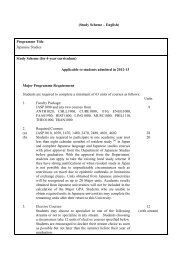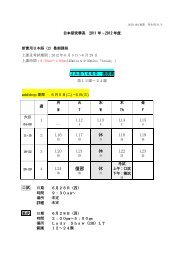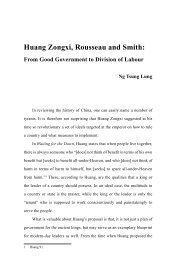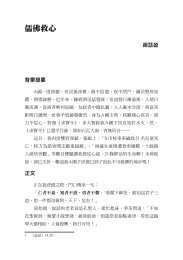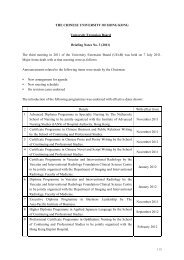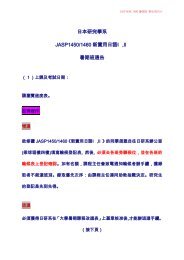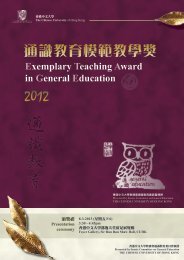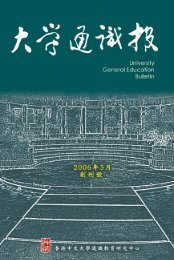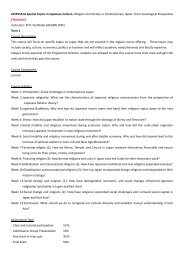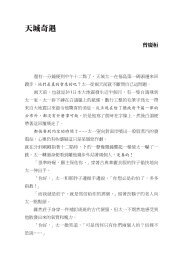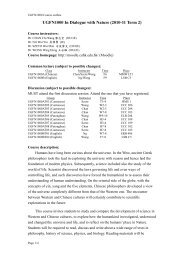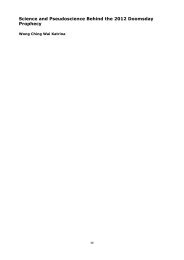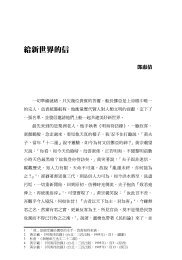ä¸è¼å ¨æ¸ - The Chinese University of Hong Kong
ä¸è¼å ¨æ¸ - The Chinese University of Hong Kong
ä¸è¼å ¨æ¸ - The Chinese University of Hong Kong
You also want an ePaper? Increase the reach of your titles
YUMPU automatically turns print PDFs into web optimized ePapers that Google loves.
206 Teaching and Learning in General Education<br />
the situation described by Nhat Hanh We would say something like “<strong>The</strong><br />
sunflowers do not yet exist although their seeds have already been planted.”<br />
Would we say that some cooked dishes already exist when actually only<br />
some raw materials for cooking have been prepared Definitely not. So why<br />
did Nhat Hanh say such a strange thing Would there be some deep hidden<br />
meanings in his words, concealing some deep hidden truths Would there<br />
be some deep hidden meanings in my words if I said that the cooked dishes<br />
already exist Under our existing use <strong>of</strong> words, my statement would either<br />
be clearly false or still need to be assigned some meanings that would make<br />
it true or even pr<strong>of</strong>ound. Nhat Hanh’s statement should be treated in a like<br />
manner. Suppose, reasonably, that Nhat Hanh did not intend to say something<br />
so obviously false. What, then, did he actually mean (if anything) I do not<br />
know and the context reveals nothing to me. Even if Nhat Hanh had really<br />
meant something special (which is doubtful), his way <strong>of</strong> expressing his<br />
meaning — by using common words while intending an uncommon meaning,<br />
yet without any indication that this was the case — can be taken as a case <strong>of</strong><br />
conceptual distortion. Words should be construed under their usual meanings,<br />
unless otherwise indicated. For readers, Nhat Hanh’s statement could have<br />
been a way <strong>of</strong> distorting the usual meaning <strong>of</strong> the word “exist” with regard to<br />
non-transparent objects.<br />
When teaching logical skills, my central message to students is that<br />
such skills are useful and applicable to daily reasoning and argumentation.<br />
Examples <strong>of</strong> topics that I cover are “argument analysis,” “deduction and<br />
<br />
For the sake <strong>of</strong> simplicity, I ignore the problem <strong>of</strong> the possible case that the new meanings<br />
assigned to the words are totally unrelated to the original meanings. <strong>The</strong>re might be a<br />
problem <strong>of</strong> the illegitimate assignment <strong>of</strong> meaning in certain linguistic contexts.



